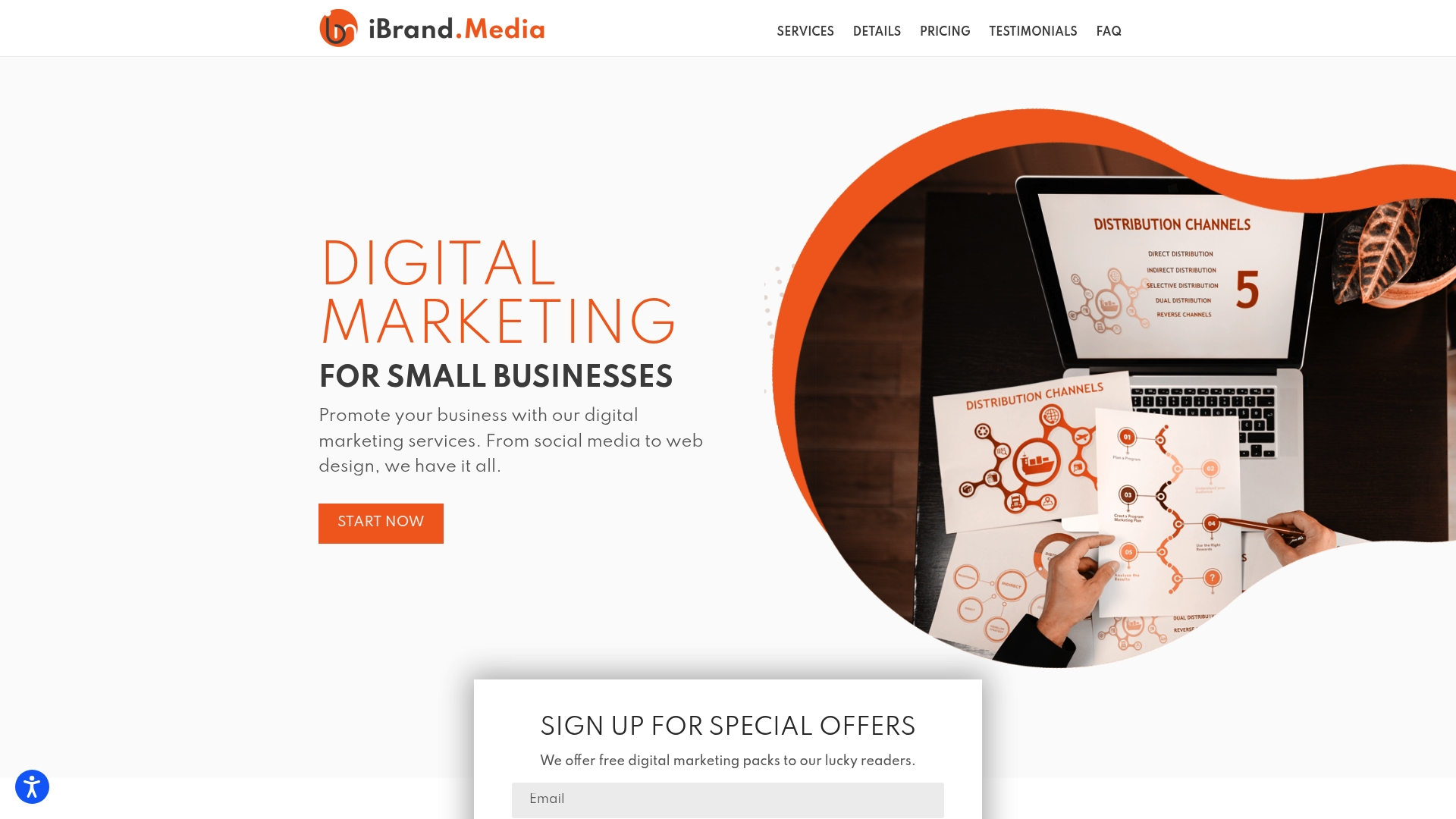Did you know that more than 90 percent of people never click past the first page of search results? Standing out online is more important than ever as search habits evolve and competition tightens. Understanding the real meaning of SEO and the latest trends can mean the difference between being found or getting lost online. Find out how clear strategies can shape stronger digital growth and help your business thrive amid shifting search technologies.
Key Takeaways
| Point | Details |
|---|---|
| Ongoing Process | SEO is not a one-time task but an ongoing endeavor requiring continuous adaptation and optimization. |
| Generative Engine Optimization | Businesses must adapt their SEO strategies to include optimization for AI-driven platforms alongside traditional search engines. |
| Cost-Effective Growth | SEO offers a significant return on investment for small businesses, often outperforming traditional advertising methods. |
| Balancing Strategies | Combining SEO with paid advertising can maximize visibility while leveraging the long-term benefits of organic traffic. |
Table of Contents
- Defining Seo And Common Misconceptions
- Emerging Seo Trends And Technologies 2025
- Key Benefits And Roi For Small Businesses
- Risks, Costs, And Return On Investment
- Comparing Seo To Paid Digital Marketing
Defining SEO and Common Misconceptions
Search Engine Optimization (SEO) represents a strategic digital marketing approach designed to enhance a website’s visibility and ranking within search engine results pages. At its core, SEO involves optimizing digital content to improve organic search performance, helping businesses attract more potential customers without paying for direct advertising.
Many business owners mistakenly believe SEO is a one-time task or simply about stuffing keywords into web pages. In reality, SEO is an ongoing process requiring continuous adaptation. According to emerging research on understanding SEO optimization, modern SEO involves complex strategies including technical website optimization, content quality, user experience, and strategic link building.
A significant emerging trend is Generative Engine Optimization (GEO), which focuses on improving visibility across generative AI platforms like ChatGPT and Gemini. This represents a critical evolution in digital marketing, highlighting that traditional SEO approaches are no longer sufficient. Businesses must now optimize content not just for traditional search engines, but for AI-driven discovery platforms.
Key SEO misconceptions include:
- SEO is a one-time effort
- Keywords are the only important factor
- High traffic automatically means business success
- SEO results are instantaneous
Successful SEO requires patience, strategic planning, and a comprehensive understanding of how search technologies continuously evolve.

Emerging SEO Trends and Technologies 2025
Artificial Intelligence is rapidly transforming the landscape of search engine optimization, pushing businesses to adapt their digital strategies in unprecedented ways. According to research from Ohio State University, the future of SEO in 2025 will be characterized by increasingly sophisticated technological integrations that prioritize user experience and intelligent content delivery.
One groundbreaking development is Generative Engine Optimization (GEO), a new approach that helps businesses optimize content for AI-driven search platforms. According to the academic paper “Generative Engine Optimization: How to Dominate AI Search”, this emerging strategy focuses on structuring content to be more machine-readable and contextually relevant. Optimizing websites for search now requires understanding how AI interprets and ranks content beyond traditional keyword strategies.
Key emerging SEO trends for 2025 include:
- Enhanced mobile-friendly design
- Voice search optimization
- Natural language query processing
- AI-powered content structuring
- Faster page loading speeds
- More intuitive website navigation
Successful digital marketing in 2025 will demand a holistic approach that seamlessly blends technical optimization, user experience, and intelligent content strategies. Businesses must stay agile and continuously evolve their digital presence to remain competitive in an increasingly AI-driven search ecosystem.
Key Benefits and ROI for Small Businesses
Search Engine Optimization has become a critical investment for small businesses seeking sustainable digital growth. According to recent research, businesses are increasingly recognizing SEO as a more strategic long-term approach compared to traditional advertising methods. In fact, studies show that 60% of small businesses now prioritize SEO over pay-per-click advertising due to its cost-effectiveness and lasting impact.
The financial potential of SEO is remarkable. Benefits of online marketing reveal an extraordinary return on investment, with documented ROI ranging from 500% to 1,300% over just 12 months. This substantial financial performance stems from SEO’s ability to build genuine customer trust, enhance brand visibility, and create sustainable digital presence without the continuous expenses associated with paid advertising.
Key benefits of SEO for small businesses include:
- Cost-effective customer acquisition
- Long-term organic traffic growth
- Enhanced brand credibility
- Improved user experience
- Competitive market positioning
- Higher conversion rates
Small businesses that strategically invest in SEO can transform their digital marketing approach, turning their online presence into a powerful, self-sustaining growth engine that continuously attracts and converts potential customers without recurring advertising expenses.
Risks, Costs, and Return on Investment
Search Engine Optimization involves significant financial considerations that small businesses must carefully evaluate. According to industry research, while SEO can deliver impressive returns, the potential risks and upfront costs require strategic planning and informed decision-making. Understanding the business risks becomes crucial for entrepreneurs seeking sustainable digital marketing strategies.
Industry data reveals compelling ROI statistics that demonstrate SEO’s potential. In 2025, SEO typically achieves an average return between 550% to 748%, dramatically outperforming paid advertising’s approximate 200% return. However, these impressive figures come with a critical caveat: success depends entirely on effective strategy implementation. A cautionary case study highlights potential pitfalls—one small business invested nearly AUD 20,000 in SEO services but received minimal traffic, underscoring the importance of selecting reputable and results-driven providers.
Key risks and cost considerations include:
- Initial investment ranging from $1,000 to $5,000
- Potential for low-quality or ineffective service
- Long-term commitment required for meaningful results
- Complexity of maintaining ongoing optimization
- Variability in results across different industries
- Need for continuous learning and adaptation
Successful SEO demands a balanced approach: carefully vetting providers, setting realistic expectations, and viewing optimization as a long-term investment in digital business growth rather than a quick fix for immediate sales challenges.
Comparing SEO to Paid Digital Marketing
Digital marketing strategies have evolved dramatically, presenting businesses with critical choices between organic search optimization and paid advertising. SEO vs Paid Advertising reveals a complex landscape where each approach offers unique advantages and challenges for small businesses seeking online visibility.
Research from leading marketing analysts highlights stark differences in performance and sustainability. In 2025, SEO demonstrates significantly superior long-term returns, averaging 550% to 748% ROI compared to paid advertising’s approximately 200% return. Unlike paid ads that provide immediate but temporary visibility, SEO builds lasting digital authority through high-quality content, creating a sustainable traffic generation method that continues producing results even after initial investment.
Key comparative aspects include:
- SEO provides long-term organic traffic
- Paid ads offer immediate but short-lived visibility
- SEO builds brand credibility and trust
- Paid advertising requires continuous financial investment
- SEO yields lower cost per customer acquisition
- Paid ads stop generating traffic when spending ends
Successful digital marketing in 2025 demands a nuanced approach. Smart businesses will likely combine both strategies, using paid ads for immediate visibility while simultaneously building robust, sustainable organic search presence through strategic SEO investment.
Here’s a comparison of SEO and paid digital marketing for small businesses:
| Aspect | SEO | Paid Advertising |
|---|---|---|
| ROI (2025 Average) | 550%-748% | ~200% |
| Traffic Type | Long-term organic | Immediate, short-term |
| Cost Structure | Upfront/ongoing | Pay-per-click/impression |
| Brand Credibility | Builds trust | Limited impact |
| Investment Persistence | Results last after spend | Stops when spend ends |
| Strategic Focus | Content & site optimization | Audience targeting & budgets |
Turn 2025 SEO Uncertainty Into Your Competitive Advantage
Struggling to keep up with rapidly changing SEO trends and worried your business might be left behind?
 The article highlights how shifting search technology, new challenges like Generative Engine Optimization, and complex digital strategies can overwhelm even the savviest entrepreneurs. Many small businesses fear wasted investments or missing out on long-term traffic and ROI. If you want clear answers and real results, you need a partner who makes advanced SEO both understandable and actionable.
The article highlights how shifting search technology, new challenges like Generative Engine Optimization, and complex digital strategies can overwhelm even the savviest entrepreneurs. Many small businesses fear wasted investments or missing out on long-term traffic and ROI. If you want clear answers and real results, you need a partner who makes advanced SEO both understandable and actionable.
Discover our proven strategies

Let ibrand.media help you unlock the next level of online growth. Our specialists focus on your unique goals and deliver tailored solutions using the latest SEO techniques. We prioritize transparent pricing, mobile-ready designs, and real-time tracking so you can see actual business results in weeks, not months. Visit ibrand.media to request your custom digital marketing plan and get ahead while others are still catching up. Take the first step toward future-proofing your business today.
Frequently Asked Questions
What is SEO and why is it important for businesses?
SEO (Search Engine Optimization) is a digital marketing strategy that enhances a website’s visibility and ranking on search engine results pages. It’s crucial for businesses as it helps them attract organic traffic, build credibility, and ultimately convert visitors into customers without ongoing advertising costs.
How does Generative Engine Optimization (GEO) differ from traditional SEO?
Generative Engine Optimization (GEO) focuses on optimizing content for AI-driven search platforms like ChatGPT and Gemini. Unlike traditional SEO, which centers on keyword strategies, GEO emphasizes ensuring that content is machine-readable and contextually relevant, adapting to the needs of advanced AI systems.
What are the key benefits of investing in SEO for small businesses?
Investing in SEO offers numerous benefits for small businesses, including cost-effective customer acquisition, long-term organic traffic growth, enhanced brand credibility, improved user experience, and higher conversion rates. These factors contribute to creating a sustainable digital presence.
What should small businesses consider regarding SEO costs and ROI evaluation?
Small businesses must weigh the initial investment of SEO services, which can range from $1,000 to $5,000, against potential returns. While the average ROI for SEO can range from 550% to 748%, success requires effective strategy implementation and ongoing optimization efforts.

Recent Comments